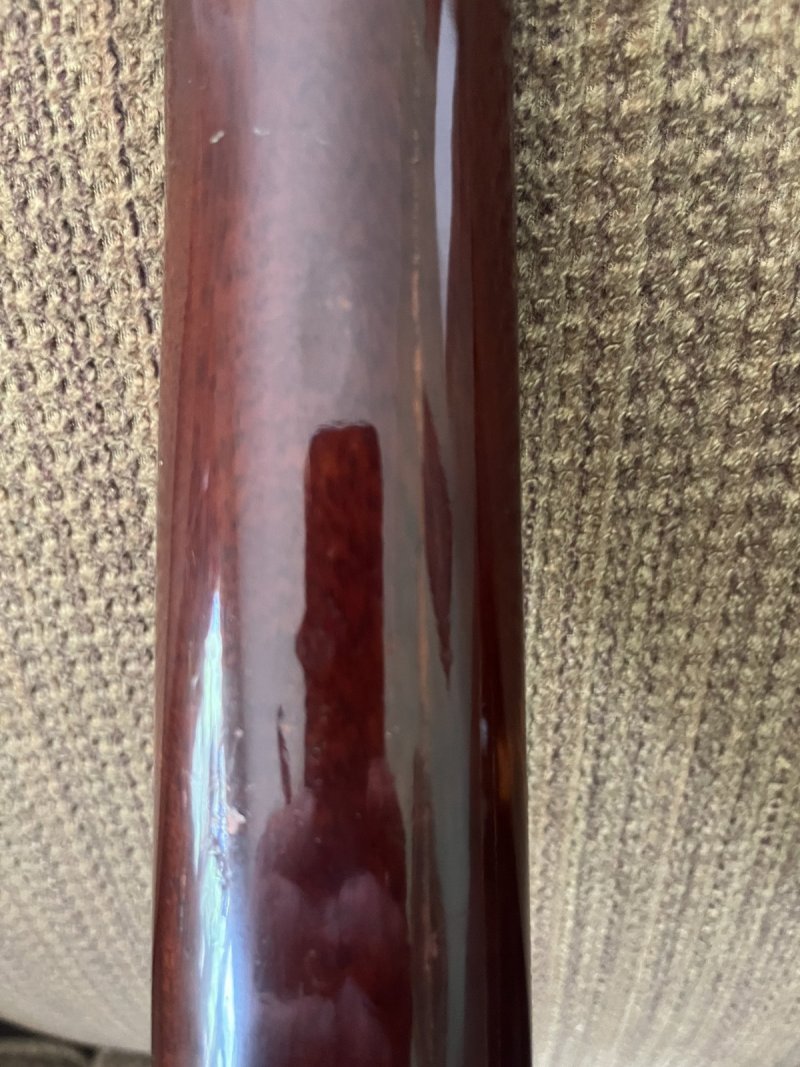The neck on my '70s-era F112 has a crack along the backside (see below). The crack is totally closed; in fact, I'd think it was just a finish blemish, probably, if I didn't know the issue is fairly common on Guild 12 strings from over-tightening the truss rod(s). The crack runs from about the first to the fifth fret.
My questions: should I get this fixed (and, if so, how and how much would such a repair cost) or live with it (as I have for the 10 years I've had the guitar?) Fortunately the guitar plays well and has a good set-up and I haven't had to adjust the truss rod (if indeed it's even adjustable.)
And when it comes to fixing the neck, can you really get glue into a crack (if that's the solution) that's so tightly closed? I assume you'd have to remove the fingerboard to make the repair, right?
I do need a fret job, but I don't want to put that kind of money into a guitar that has what might be a chronic or un-fixable problem. Other than the crack and whatever truss rod issues a close look might reveal, the guitar is in good condition.
Suggestions, anyone?
Thanks....
 .
.
My questions: should I get this fixed (and, if so, how and how much would such a repair cost) or live with it (as I have for the 10 years I've had the guitar?) Fortunately the guitar plays well and has a good set-up and I haven't had to adjust the truss rod (if indeed it's even adjustable.)
And when it comes to fixing the neck, can you really get glue into a crack (if that's the solution) that's so tightly closed? I assume you'd have to remove the fingerboard to make the repair, right?
I do need a fret job, but I don't want to put that kind of money into a guitar that has what might be a chronic or un-fixable problem. Other than the crack and whatever truss rod issues a close look might reveal, the guitar is in good condition.
Suggestions, anyone?
Thanks....
 .
.